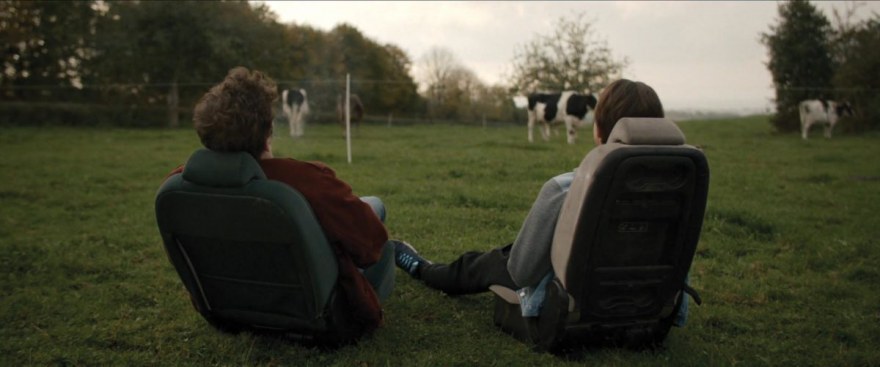Night cap with Matador
An interview with Matthias Jenny, director of Matador
Can you tell us about the origins of Matador?
Matador stems from the intersection of two desires. On the one hand, the desire to speak about people who don’t feel represented or listened to in society. Forgotten by everyone, left on their own, they are on the verge of tipping, of no longer respecting laws that they feel were made to protect “others.” In other words, it’s the picture of a society where each person is obsessed by his own problems and pays no attention to his neighbor’s. On the other hand, I discovered a bit by accident the profession of “killer’ in a slaughterhouse. Men and women whose job is to kill animals so that all of us who want to can eat meat. I found it interesting that these people are trained to kill and are called “killer” on their pay slip and they do the job perfectly well within the slaughterhouse. It’s a recurring theme in spy movies: what would happen if our best agent vanished into thin air? In the same way, I was seduced by the idea of leaving a killer alone in the middle of a field to see what happens.
What inspired you to bring the working class and the rural world to the screen, both of which are rarely portrayed in film?
Well, I can’t answer for others who don’t film in these conditions. For me, I see only advantages. As my characters are at the periphery socially, I wanted to place them in a décor at the limits between two worlds: the city and the country. Between wide open spaces and confined spaces. For example, Jean and Léo live in a building on the outskirts of a small city next to fields. They see the vast expanses but have no yard themselves. Huguette’s nightclub spouted up like a mushroom in the middle of the fields; it’s the symbol of the disconcerting coexistence between man and nature. On a more pragmatic level, I found these decors incredibly beautiful and in fact seldom seen in film even though their inhabitants can have experiences with universal appeal. Everything is present there to make beautiful films!
Matador is the story of manifold solidarity: between two friends but also between Léo and his grandmother. Where did the idea come from to base the film on this rather uncommon relationship of two generations who live together?
When I expose the elements cited above (marginalized people, people on the edge of society, ready to kill animals directly in the fields) I find one can easily slip into a societal film noir with no discernment. Therefore, I looked for an element that would lighten the tone. It’s at this moment that Huguette appears and with her, the promise of a change. She’s known the two protagonists since their birth and, like all grandmothers, she can only regard them as angels. The three characters, consciously or not, enter into a game to hide their true actions.The irony of this story is that I took many aspects from my own grandmothers to develop Huguette and today they don’t want to watch my film because they don’t want to have to realize “the nonsense I could tell!”
In general, what is your view regarding the visibility of short films today?
This is my first short film and Clermont-Ferrand is the first festival where Matador is in competition. Unfortunately, I am not the most qualified person to talk about the visibility of short films. Let’s talk about that in a year!
Would you say that the short film format has given you any particular freedom?
The main freedom in the case of Matador is in the scenario. Instead of going through the entire psychological thought process of the characters up to committing their crimes and then watching them muddle through their errors – which would have made for a feature-length film – I make a snapshot of them as their adrenaline rises! I relate just a situation, a remarkable exploit which, I hope, will prompt a discussion with the viewers!










